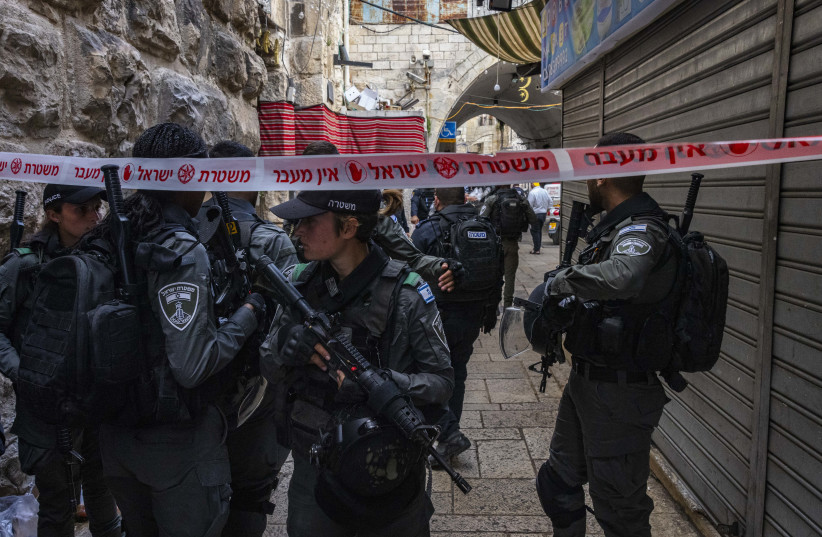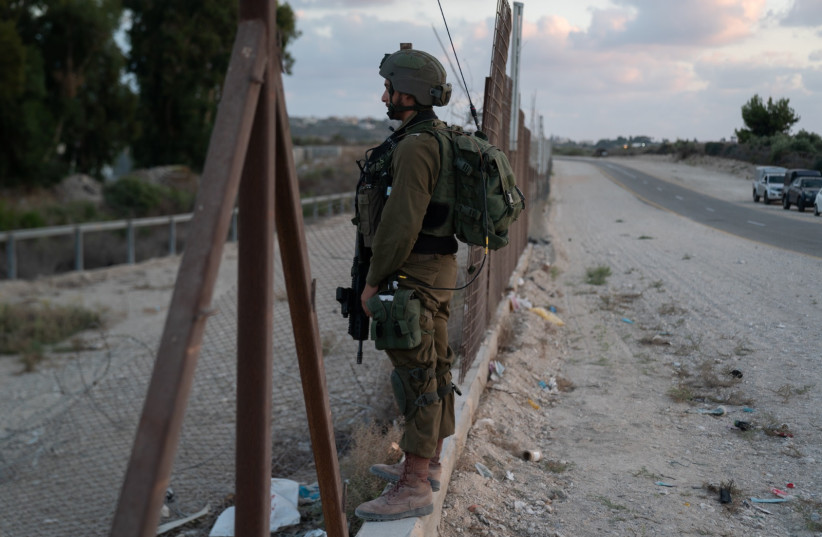The IDF is preparing for twice the amount of violence within Israeli-Arab cities than during last year's anti-Hamas operation in the Gaza Strip, in the event of a new conflict.
During the 11-day fighting last year, there was heavy rioting in those areas as well as mixed Israeli-Arab cities such as Lod and Jaffa. Two people were killed and several civilians were injured.
As part of an ongoing IDF drill, the military will simulate scenarios where there is even heavier rioting, two times the level of violence seen last year.
The military wants to be able to send troops before violence breaks out, and not in response to the violence and will work to keep roads open in areas in the Negev and in the Wadi Ara area of northern Israel.
In addition, with tensions high in the West Bank and Jerusalem, the Israeli military continues to view its crackdown on terrorism on all six fronts, including inside the country as its top priority despite being in the midst of the largest exercise in its history.
Israel has been carrying out an operation dubbed “Break the Wave” over the past two months in an attempt to prevent further attacks against Israeli citizens after a spate of attacks claimed the lives of 19 people.
During a visit to the Ephraim Brigade in the West Bank on Tuesday morning, Prime Minister Naftali Bennett said that the IDF has a clear directive to root out terrorists.

"The directive is clear," Bennett said, "the IDF must strike the terrorists wherever they are, with any types of weapons. This who raise a hand against an Israeli citizen or an IDF soldier - their blood is on their own heads.”
The military believes that religious incitement surrounding the Temple Mount and personal reasons are driving Palestinians to attack Israelis and while Hamas is not behind the current wave of attacks carried out by lone wolves, the group is piggybacking on the success carried out by the terrorists.
It’s believed that Hamas is responsible for 25% of the incitement, another 25% by the Islamic Movement, 10% by Hezbollah and the rest by bots from Malaysia and India.
"We are facing a wave of terror based on a series of attacks that take advantage of the sensitive situation in Jerusalem and the Temple Mount, where Israel maintains freedom of worship,” said Defense Minister Benny Gantz.
Calling on the international community to condemn incitement, Gantz said that the attacks “are connected to each other as they are based on incitement that is spread by terror organizations in the region. This incitement is not sufficiently condemned by world and regional leaders, who should also prioritize stability in the region.”
Ahead of the month of Ramadan, the IDF increased its intelligence gathering and raids where some 900 Palestinians were arrested in order to reduce the number of possible attacks, something that did not fully succeed.
Since the beginning of Operation Break the Wave, some 300 Palestinians have been arrested. During the raids, close to 30 Palestinians have been killed by Israeli security forces, either while committing attacks or during clashes. Several bystanders have also been killed, including a teenage girl who was returning home from studying and an Al Jazeera journalist who was covering raids in Jenin.
In order to bring the current wave of violence to an end without further attacks the security establishment-IDF, Shin Bet, and Israel Police- have been focusing their sights on the northern West Bank and have increased troop presence along the Seam Line where Palestinians have illegally crossed into Israel through holes in the security fence.

The troop deployment, as well as the call-up of reserve forces, is expected to last into the coming year.
The IDF believes that despite speeches by Hamas leader Yayha Sinwar calling for additional attacks, intelligence shows that the group did not plan or support the terrorists who carried out the attacks.
Though it was initially believed that the attackers who carried out the deadly attacks in Elad two weeks ago, did so after listening to Sinwar calling for Palestinians to use axes to kill Israelis, they did not listen to his speech and killed their victims for personal reasons.
The military believes that Hamas is still deterred and licking its wounds from Operation Guardian of the Walls and does not want another round of fighting in the Gaza Strip with the IDF.
But, they do understand that there can be a red line for the group which could lead them to fire rockets toward Israel.
Tovah Lazaroff contributed to this report
